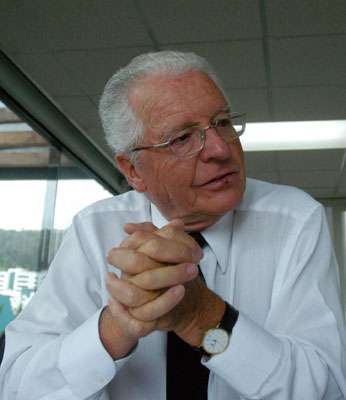R
Even though Andrés Manuel López Obrador was elected as president, there was a meeting at an important autonomous university like those that surely took place in other institutions. The result of the election was expected and even welcomed, but it was concerned that a stage of budget cuts and aggressive policies would come from the Federation. So strong was the feeling of stepping on a new and unknown terrain, different from the already naturalized free trade, that the rector decided to invite to the meeting a scholar of education who had hitherto been frowned upon for her critical positions towards the authorities and the public. the university they were building.
In a moment of drastic change in the landscape, she appeared as a wise guide and expert. And it wasn’t from Morena. And she was lavish in her comments. He proposed as wrong and even counterproductive to assume a merely defensive and conservative stance. Not foreseeing and ruling out any modification on their own initiative from the outset, it was something that would make the institution very vulnerable. It would expose her to pressure and change from the outside.
The new context gave him the possibility of changing, not out of opportunism in the face of a new regime, but from the fact that now, in an environment of broad social expectation, it was clearer and easier to modify the questionable features of the university model generated from the decade of the 90. And he gave as examples of possible initiatives, the following: review and redistribute the budget eliminating luxury items, bonuses and support to the authorities; reduce scholarships and incentives for academics and seek to integrate them into salary.
He proposed that with all these savings the enrollment be expanded. In addition, replace standardized tests with less aggressive, fairer and non-discriminatory procedures; design a route to definitively hire academic workers with decades of precariousness in the institution; shorten the extremes of the payroll (originally the highest income of an academic was equivalent to five times the lowest of the institution, but in the aforementioned decade of the 90s the ratio went to 15 times).
Review study and research plans and programs together with teachers, students and local groups and communities, in order to reorient professions and research, as well as cultural diffusion with a deep social sense; declare the institution and all its new university extension services free, establish total institutional transparency and a broad and decisive participation of students and workers – academic and administrative – in the direction of the institution. In such a way that rather than being determined from the outside, the call transformation
it occurred from a reactivation of the energy of the universities themselves and also from the historical terms of the struggles of students and academic workers. She says that when she finished her speech, there was a deathly silence and, she adds with a malicious smile, she was never invited again.
The rest of the story is known. The rectors were content with the promise that the real value of the subsidies would be maintained, but they never called or initiated a minimal and critical review of their institutions and disdained the energy that the wide and deep social expectations of a change with respect offered them. of Education. So they left the review and criticism to be done by others. And that it was also others who then began to make decisions. And thus, the General Law of Higher Education boxes private and public universities alike, treats them as equals and subjects them to the centralist and vertical coordination
of the SEP.
In addition, it makes university rectors and councils directly responsible for the right to education of young people before the civil courts. Before the workforce, it places them as the cause of academic precariousness. And it is in the instances of human rights, the discussion and destiny of the entrance exams. Even the Office of the Attorney General of the Republic is today enabled as a watchdog of what happens in the universities and now it is seen as more alien than ever. Not out of rebellion against injustice, but out of ignorance of the sea of need for knowledge that surrounds him.
And, to the liking of his enemies, his loss of prestige increases. The measure of its importance is not given by the adjectives that – bad – the presidential power and Tv Azteca attach to it, but the overwhelming fact that there is no one who defends it today as massively and vigorously as it has happened in the past. And we know why: these 30 years have made them silent, mutilated and grotesque
. And it has tried to reduce the actors (students, organized workers) with whose help it would still be possible to generate a new dynamism in them today. And, also, invite back the one who never listened.
* UAM-Xochimilco







